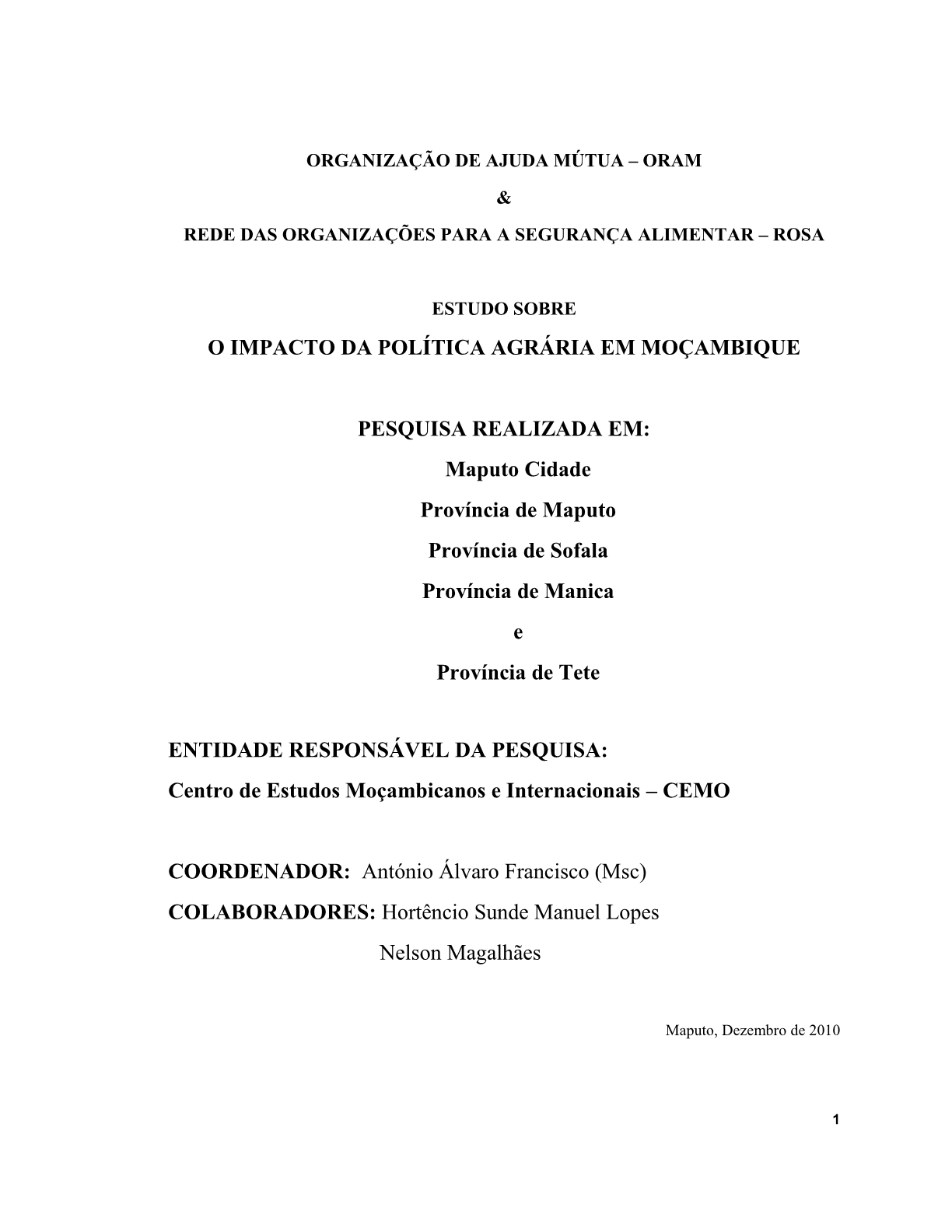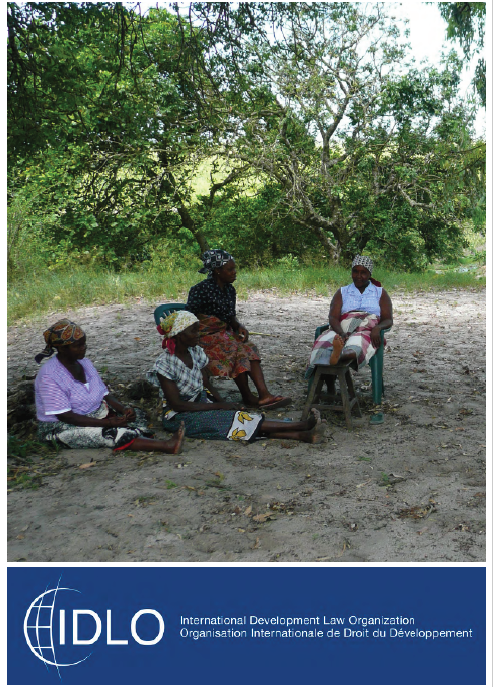Women's gains from the implementation of succession law in Uganda : voices from Wakiso and Mpigi districts; final report
The marginalization of women with regard to property ownership has hampered efforts for poverty alleviation and the improvement of livelihoods. In Uganda, current institutionalization of land reform necessitates inquiry, to determine whether women’s status has changed under new provisions. The Succession Act makes some helpful provisions but also presents loopholes, which can be exploited by illegitimate claimants.
Advocacy phase : final report
The report covers activities and outcomes of various projects for enhancing women’s access to land and land titles in Kenya, Mozambique, Madagascar, Nairobi and in other areas of East and Southern Africa, as well as raising awareness about women’s land rights.
O impacto da política agrária em Moçambique
Moçambique localiza-se na costa sudueste de África, com uma área de cerca de 799.380 Km1 e uma linha costeira de cerca de 2.515 Km ao longo do Oceano Índico, constituindo um espaço vital tanto para o país assim como para os países vizinhos situados no interior que só têm acesso às vias oceânicas através dos portos moçambicanos. Em termos de fronteiras, o país faz limite, a Norte, com a República Unida da Tazânia, a Oeste com o Malawi, Zâmbia, Zimbabwe, Suazilândia e República da Àfrica do Sul; a Sul, faz divisa com a Àfrica do Sul, países com os quais partilha cerca de 4.330Km.
Customary land reform to facilitate private investment in Zambia: achievements, potentials and limitations
In the name of development, governments in southern Africa are reformulating land policies to facilitate privatisation of customary land rights. It is argued that this can stimulate land markets, (foreign) private investment, access to formal credit, and enhance security of tenure (by way of holding title), thereby leading to economic growth and poverty alleviation.
Enhancing Legal Empowerment Through Engagement with Customary Justice Systems
The complex relationship between law, land rights and customary practices is increasingly recognized as foundational to formulating successful development policies. Similarly, the essential role of women’s economic participation to development and the current trend of gender discriminatory land and inheritance customary practices have prompted domestic civil society organizations in developing countries to use statutory provisions guaranteeing gender equality to improve women’s land tenure security.
The Impact of National Land Policy and Land Reform on Women in Zambia
Includes background to women’s land rights in Zambia; policy and legal reforms of the1990s; key findings – gender insensitivity on land laws and policies, the high cost of legal fees to handle land disputes, the limited benefits of title deeds for women, lack of awareness on land policy process, land grabbing and disinheritance, lack of security of tenure, lack of access to justice; conclusions and recommendations.
Women’s rights and access to land in Africa
Contains relationship between land rights, poverty and food security; political support for women’s land rights?; change through education and empowerment; in whose interest?; law and enforcement; part of wider changes.
New agribusiness investments mean wholesale sell-out for women farmers
Globalisation impacts on local land markets and land-use, land transaction costs affect food prices, and the combined effect is particularly damaging to women who produce food and put food on the table for their families. Article examines what is attracting investors and market speculators into the farm and land sectors; what is at stake for small farmers – especially women farmers – and long-term impacts for food production and food security; and what action is needed to enable women to secure access to natural resource and land assets for current and future generations?
Reconciling Living Customary Law and Democratic Decentralisation to Ensure Women’s Land Rights Security
Argues that decentralisation holds much potential for lively, participatory democratic lawmaking and enforcement through which rural women can gain greater power and secure more rights. Essential that all decentralisation policy be guided by constitutional principles. Explores the guiding principles necessary to safeguard democratic decentralisation.
The Impact of National Land Policy and Land Reform on Women in Uganda
Includes background to women’s land rights in Uganda; lack of information; prevailing cultural attitudes that discriminate against women; lack of formal land ownership by women; lack of participation of women in land policy formulation; exclusion of women in matters of land inheritance; lack of access to justice; gaps in the ongoing land reform process; conclusions and recommendations.
Land Grabbing in Africa. A Review of the Impacts and the Possible Policy Responses
Includes the rise of land deals in sub-Saharan Africa; land grabbing and risks for small scale farmers; land grabs: another yoke over women’s land rights?; is land grabbing threatening pastoralism?; opportunity for groups at risk: the African Union’s continental standards on the land question.






